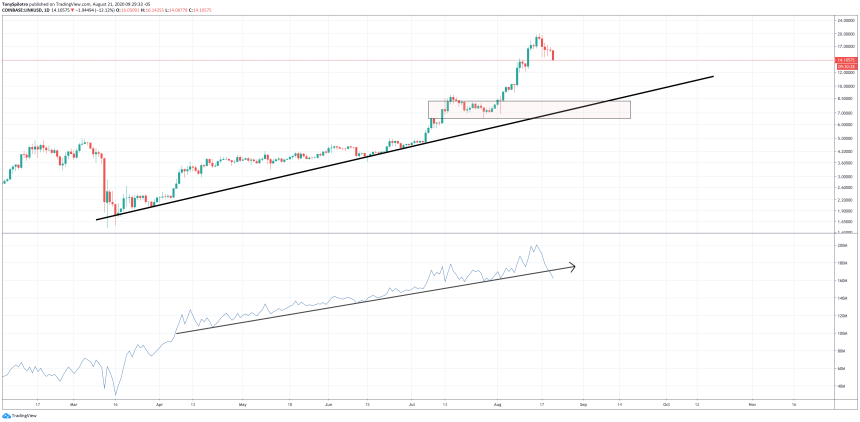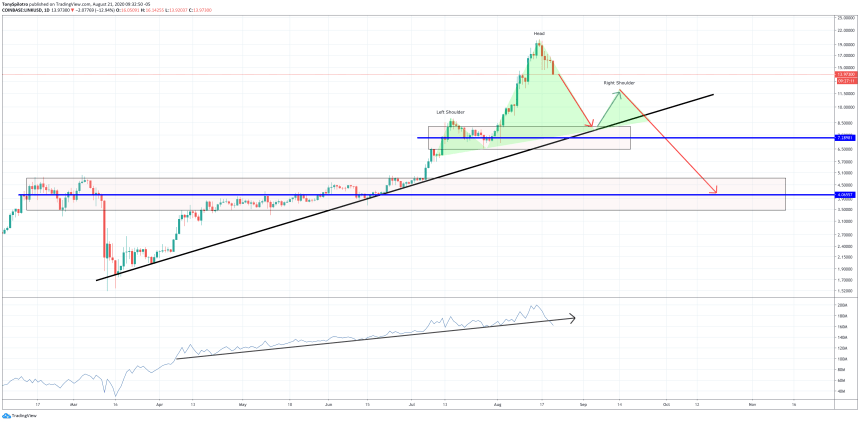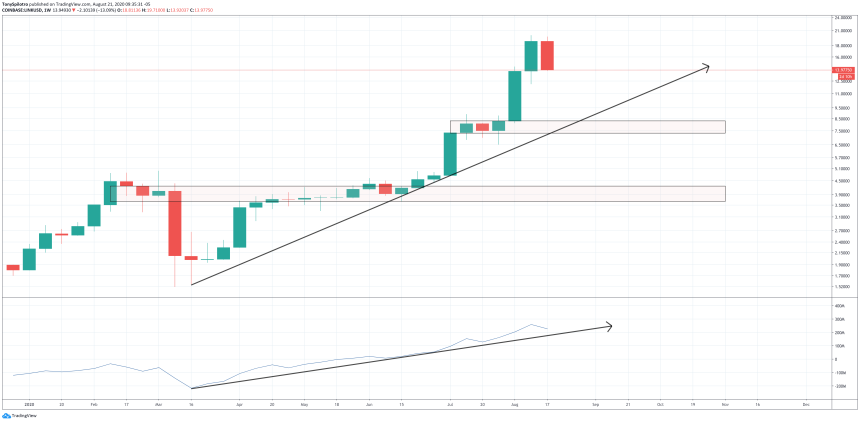Chainlink has been the highlight of the crypto market for the last few years. It is about the only asset setting new record high after high. Meanwhile, the rest of the asset class is down between 40% to as much as 90% or more in some cases from their peaks.
However, an indicator that spots behavioral patterns by “smart money” may be signaling that Chainlink’s uptrend is over for good. Or at least until a strong enough correction makes prices attractive once again. Here’s what to expect if the indicator happens to be correct.
Chainlink Correction Becomes More Likely As Indicator Uptrend Comes to a Finish
Prior to the crypto bubble popping, crypto investor success stories were a dime a dozen. New millionaires were popping up nearly as fast as new ICOs were.
But after the bubble burst and valuations came tumbling back to reality, those success stories have been few and far between. In fact, many of them turned into horror stories, where fortunes on paper evaporated into realized losses and people panic-sold.
Related Reading | Easy Money? Coinbase Crypto Coins Grow Over 50% On Average In August
Chainlink is one of the very few new fortunes made since then. Both dumb luck and smart money bought Chainlink early, and have profited handsomely.
But the rally appears to be peaking, and profit-taking about to begin. An indicator that could assist analysts in watching what smart money does to take action may be giving a strong tell that Chainlink’s correction is about to get violent.
On-Balance Volume: The Smart Money Indicator That May Be Calling LINK’s Peak
If you’ve been around investing or trading, it is likely you have stumbled upon the term “smart money.” It’s understood to reference high-wealth whale or institutional money, but more importantly, those with the skills and experience to know when to move before the market does.
Related Reading | Look Out Below: How Far Can The Chainlink (LINK) Crash Go?
Trading indicators often only give signals after something has happened. The On-Balance Volume indicator, however, was designed to track what smart money does, and therefore give an early signal as to what type of price action to expect.
The tool is based on the theory that volume precedes price, and after a strong rise in volume, often comes and equally strong price movement. The OBV indicator translates this volume into a visual line chart, that analyst can draw lines across for technical analysis.

LINKUSD On-Balance Volume Daily Price Chart | Source: TradingView
This particular indicator might be suggesting that so-called “smart money” is selling their Chainlink ahead of a massive drop and markdown. This is all according to LINKUSD losing an uptrend line on daily OBV dating back since Black Thursday.
On Black Thursday, LINKUSD flash crashed to $0.001 on some exchanges. Those who caught that bottom made an absolute killing. Even anyone who bought at normal prices that day has over 10 times their gains if they sold the top.
With so much money in profit, smart money is preparing to take some off the table before the wheels come out from under the rally. The cryptocurrency could fall as deep as $7, or as low as $4 from before the asset took off into price discovery.

LINKUSD Possible IHS Reversal Pattern | Source: TradingView
A bounce at $7 first, could act as a catalyst to crash even lower, taking LINKUSD down to just $4 per token. Where both daily, weekly, and monthly support lie. $7 also coincides with an uptrend line on price charts, separate from any uptrend line on the OBV.
$20 was too much for even Chainlink’s momentum, and the asset has been tumbling since. The one savior steadfast Link Marines have in their favor, is the fact that this same indicator on weekly timeframes, leaves the uptrend line unbroken.

LINKUSD On-Balance Volume Weekly Price Chart | Source: TradingView
However, top investment analysts are still claiming that Chainlink is wildly overvalued according to its annualized growth rate, and could experience a significant correction by 50% or more.
These figures match up well with the targets of the broken parabola, which range from 50% to a full 80% before finding support.



















